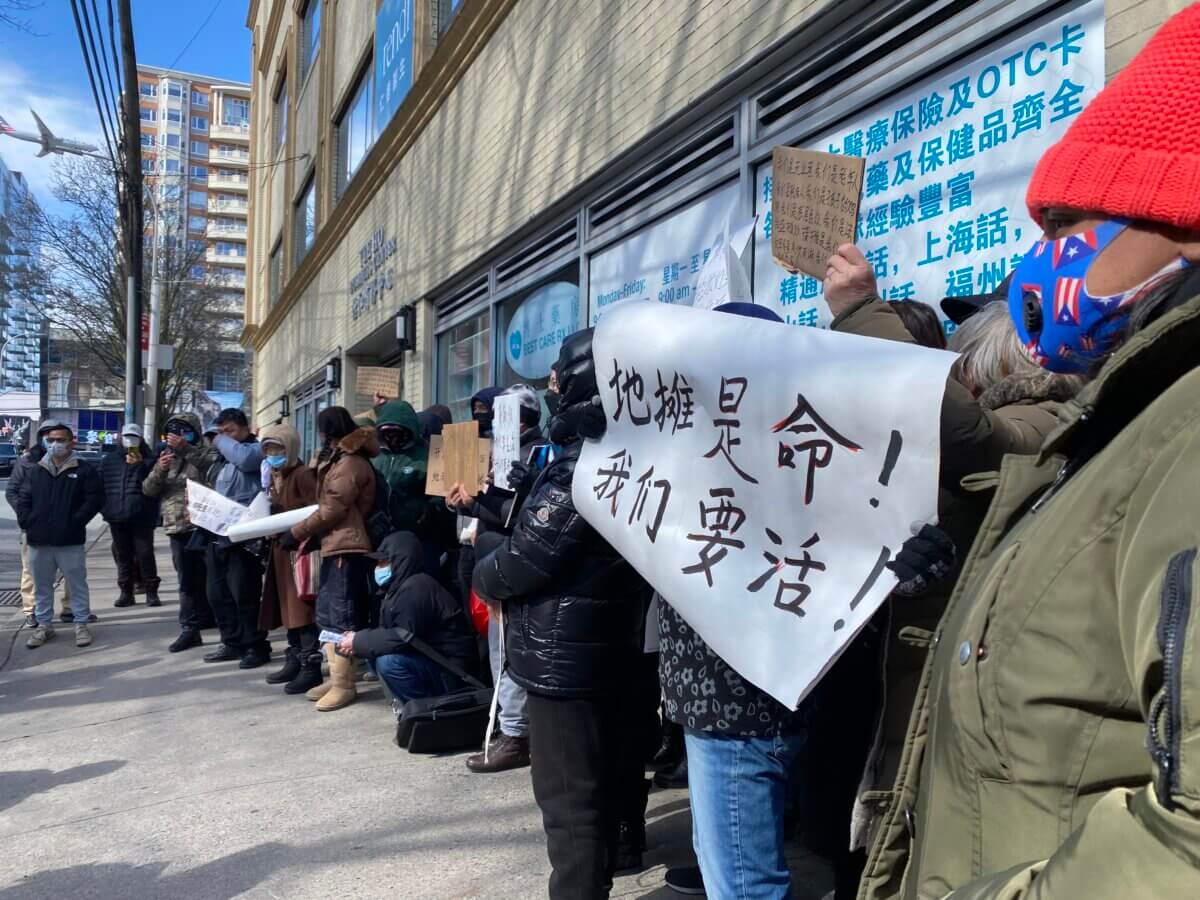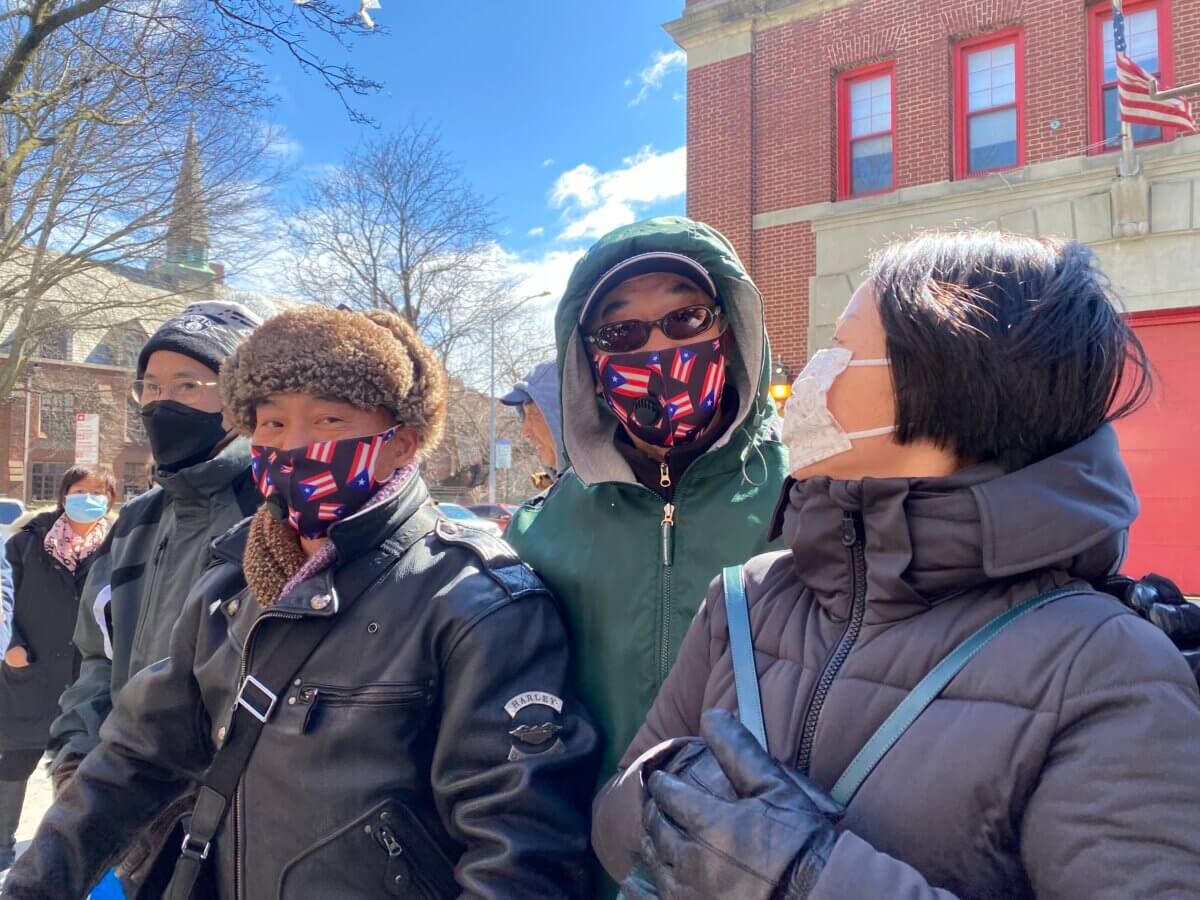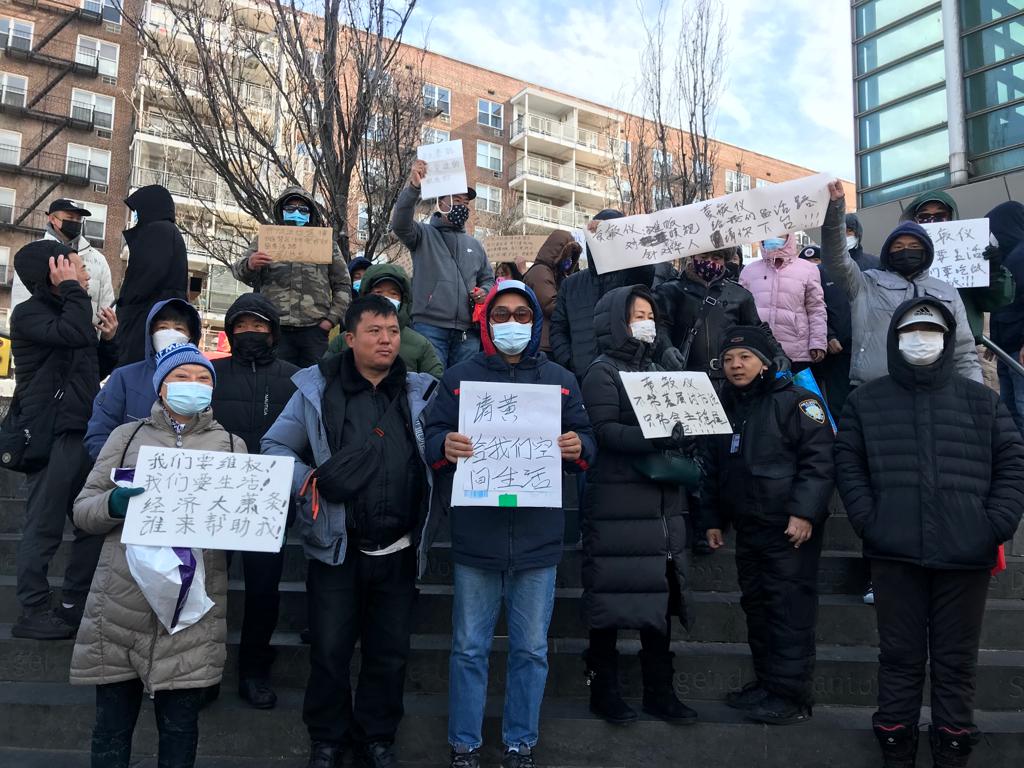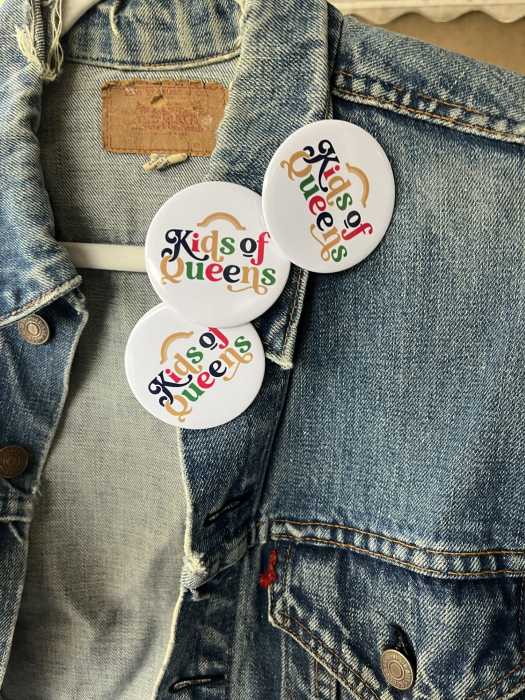Flushing street vendors are calling on Councilwoman Sandra Ung to withdraw her petition for crackdowns and punitive measures against street vendors, and to instead work together to establish a pathway to formalize street vending in downtown Flushing.
On March 15, More than 40 vendors were gathered outside of the councilwoman’s office, located at 135-27 38th Ave., where they shared their experiences and advocated for street vending reforms.

“We are simply hardworking, low-income Chinese immigrants that struggle to get by in our home neighborhood of Flushing. We vend because of old age, physical disability, being single parents, and piling debts, and wish to work with dignified working conditions,” the vendors said in a statement. “We vend in Flushing because this is our community, our culture, and we work hard to support our families to make a life here.”
The street vendors are requesting for Ung to “stop framing street vending as the source of theft, robbery, and other crimes,” and to “repeal past vending restrictions in Flushing and support street vendors to contribute to the local economy.”
Additionally, the vendors are calling on the city council and all relevant city agencies to create a just street vending reform by ensuring that all vendors operate with licenses and permits, repeal criminal liability for vending, launch an NYC Small Business Services Division for street vendors, and create more legal locations for street vendor small businesses.
Following Ung’s press conference on March 8 announcing the petition calling on the city to enforce existing street vending regulations, the vendors decided to organize and contacted the Street Vendor Project, a membership-based project with more than 1,800 vendor members who are working together to create a vendors’ movement for permanent change. The Street Vendor Project is part of the Urban Justice Center, a non-profit organization that provides legal representation and advocacy to various marginalized groups of New Yorkers.
“They want their voices to be heard and we support vendors who are fighting for their rights,” said Rui Li, of the Street Vendor Project. “We are asking for the same things — a more just vending system, a reform that includes the vendors’ voices. Right now, the barriers for street vendors to be 100% legal is impossible because they cannot apply for merchandise licenses and food vendor permits…They would all like to be in compliance and have proper documentation, but they can’t.”
Jack Yan, 61, a resident of Middle Village, who commutes to downtown Flushing to sell ceramics, said street vendors are not a danger and are just trying to make a living.

“We are out there contributing to the local community and making it a more vibrant commercial economy,” Yan said. “We are willing to work on correcting any sighting issues, but she can’t just go in and label us as such, and declare that we should be removed because we are part of the economy and commercial corridor. We are not the cause of danger and crime.”
While there are individuals within the wider vendor community that are taking up space along the sidewalk and are not following the rules, Yan said they’re not a representation of the community.
“We want the councilwoman to work with us and to not punish us. We are willing to be more educated and a lot of the vendors are new, and access is a problem because some of them don’t know English,” Yan said. “Education is important, but it’s also the responsibility of the city, as far as the councilmember, to work with us so everyone knows what the vending rules should be. The councilmember is representing the area. She should be helping us as well as supporting us, and not giving enforcements.”
Prior to the COVID-19 pandemic, Yan used to work in the hospitality industry. He began selling Chinese ceramics, jewelry, and arts and crafts near the end of 2020, a year that brought suffering and financial hardships for families impacted by the pandemic. Today, vending is his only source of income to support himself and his wife, according to Yan.
Yan works two days during the week, including weekends, due to enforcement regulations on certain days. His routine includes waking up at 6 a.m., packing up his merchandise and driving to downtown Flushing where he sets up his table. Around 4:30 p.m. he packs his fragile merchandise in his car and usually gets home at around 7 or 8 p.m.
“It’s a risk to be out there. Yes, I’ve been approached by the police. This type of fear is becoming a sort of chronic thing. We were always worried that this would happen,” Yan said.
It’s a similar situation for another Flushing vendor, Yun Lin, 50, who said she’s simply outside to do business. Being a vendor gives Lin the flexibility to take care of her family. She usually starts her day at 11 a.m. since she cares for her mother-in-law who has cancer, she said.
“I have struggled to find jobs because I don’t speak English,” Lin said. “This is my way of making an income. I have to support my kids, my husband and my parents.”
Lin became a vendor selling shoes in March 2022. She recalls when the Department of Consumer and Workers Protection (DCWP) and the NYPD confiscated her merchandise and held it at the precinct.
“It’s not easy to be outside. I felt really awful and powerless,” Lin said. “This is my business and the councilwoman is a representative of the people in Flushing, and a lot of the vendors who are low-income are her constituents too. She should support and help us, instead of cutting off our only way of survival.”
In regards to complaints of vendors leaving behind garbage, Lin said she and the other vendors nearby keep their spots clean. She claims that because the vendors are low-income people and don’t own a storefront business, they’re being treated differently even though they consider themselves small business owners.
In a statement to QNS, Ung said she has sympathy for all New Yorkers trying to make a living, however, the congestion caused by illegal vendors has presented too many public safety issues for the vital business and transportation corridor that has limited space.
“Roosevelt and Main Street is the third busiest intersection in New York City, and a lack of enforcement of even commonsense sitting, public hygiene and safety laws over the past few years has resulted in an explosion of unlicensed vending on our sidewalks with bad actors setting up stalls with no concern for maintaining a walkable path, blocking intersections, bus stops, storefronts and sidewalks,” Ung said.
Ung added that the incredible congestion caused by illegal vending impedes the disabled and senior community from walking down the street.
“This renewed effort to address this issue is the culmination of over a year of outreach, education, and gradually increasing enforcement through collaboration between my office and city agencies to encourage compliance with the law, but it is clear those efforts have been ineffective and the vacuum of enforcement has only encouraged more vendors to come,” Ung said.
Following Ung’s calls for increased enforcement of street vendors, the mayor’s office recently announced that the responsibility for enforcing street vending regulations will be transferred from DCWP to the Department of Sanitation (DSNY) beginning April 1.
“Over the past year, I have worked closely with DCWP and the Administration, who have continuously conducted outreach to unlicensed vendors regarding rules and regulations in Flushing,” Ung said. “Unfortunately, congested sidewalks and sanitation issues in Flushing have continued to pose a danger to our senior and mobility impaired neighbors who found it a challenge to even walk to the grocery store or their doctor’s office or wait for the bus due to the numerous vendors blocking sidewalks.
While she is thankful for the work DCWP did with her office over the past year to address the proliferation of vendors in the Flushing no-vending zone, Ung said she is confident that the “uniformed officers of DSNY, with their additional manpower, resources and expertise in this type of enforcement, will be able to address the proliferation of street vendors.”
On their own authority and working in concert with the NYPD, the uniformed DSNY enforcement officers will have the authority to issue fines and, if necessary after repeated warnings, confiscate goods.
On Friday, March 17, Ung hosted a meeting in her district office with representatives from the mayor’s office, Patrol Borough Queens North, the 109th Precinct and Department of Sanitation to discuss a strategy moving forward.
“I am optimistic that we are finally moving toward a permanent solution to this issue,” Ung said. “I again want to thank the mayor for listening to my concerns, and more importantly the concerns of my constituents.”
Meanwhile, the NYPD 109th Precinct announced on social media that its auxiliary police officers are continuing to distribute street vendor laws and information in multiple languages to local street vendors. They were informed that enforcement will start soon after the education period.



































